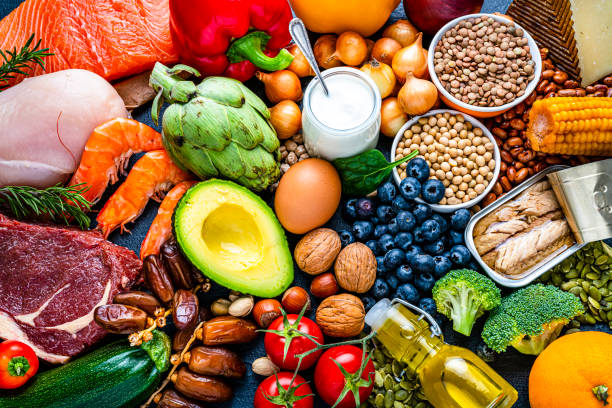Embarking on the path of endurance training is a challenging yet rewarding journey. Whether you’re a seasoned marathoner or a budding cyclist, your success in endurance activities hinges not only on the miles you log but also on the fuel you provide your body. In this blog post, we’ll explore how nutrition can be your ally in achieving peak performance and maintaining overall well-being during your endurance training endeavors.
1. Powering Up with Carbohydrates: The Fuel for Endurance
Carbohydrates are the unsung heroes of endurance training. They serve as the primary source of fuel for your muscles during prolonged activities. Adequate carbohydrate intake ensures your glycogen stores are topped up, delaying the onset of fatigue and keeping you energized throughout your training session. Focus on complex carbohydrates like whole grains, fruits, and vegetables, and time your intake strategically to optimize performance.
2. Protein: Rebuilding and Recovering Muscles
Endurance training puts your muscles through the wringer, leading to microtears that demand repair. Enter protein, the building block for muscle recovery. Post-exercise, consuming a mix of fast-absorbing proteins (think whey) and slower-absorbing proteins (such as casein) aids in muscle repair, promoting optimal recovery and adaptation.
3. Hydration: Sip by Sip Towards Success
Proper hydration is the cornerstone of endurance training. Dehydration can sabotage your performance and increase the risk of heat-related issues. Develop a hydration strategy that includes drinking fluids before, during, and after exercise. The right amount depends on various factors, so listen to your body and adapt your fluid intake accordingly.
4. Electrolytes: Balancing Act for Peak Performance
Sweat isn’t just water; it contains essential electrolytes like sodium, potassium, and magnesium. Replenishing these electrolytes during prolonged exercise is vital to prevent cramps and maintain proper muscle function. Consider incorporating electrolyte-rich foods or beverages into your nutrition plan to strike the right balance.
5. Embracing Healthy Fats: Sustaining Energy for the Long Haul
While carbohydrates take center stage, fats play a crucial role in supporting endurance activities, especially during longer sessions. Healthy fats provide a sustained energy source, helping to preserve glycogen stores and fueling your body for the extended effort required in endurance training.
6. Timing Is Everything: Pre, During, and Post-Exercise Nutrition
The timing of your nutritional intake can significantly impact your endurance performance. Pre-exercise nutrition ensures you start with optimal glycogen stores and proper hydration. During exercise, consider consuming carbohydrates and electrolytes to maintain energy levels. Post-exercise nutrition is a critical phase for replenishing glycogen stores and kickstarting the muscle recovery process. Tailor your nutritional approach to match the specific demands of each phase.
7. Personalizing Your Nutrition Plan: One Size Doesn’t Fit All
Every endurance athlete is unique, with distinct nutritional needs based on factors like age, sex, weight, and overall health. Work with a sports nutritionist or healthcare professional to create a personalized nutrition plan that aligns with your training goals and individual requirements. Experiment with different strategies to find what works best for you.
In the world of endurance training, success is a multifaceted achievement that goes beyond physical prowess. It’s about understanding and harnessing the power of nutrition to fuel your body efficiently, enhance recovery, and ultimately elevate your performance. By embracing a holistic approach to nutrition, you’re not just covering miles; you’re conquering your endurance journey with strength, resilience, and a well-nourished body.

Be The First To Comment